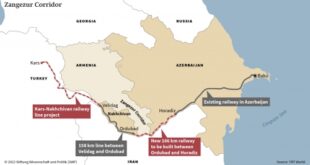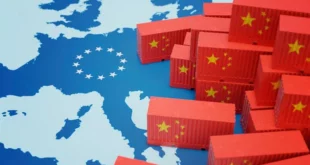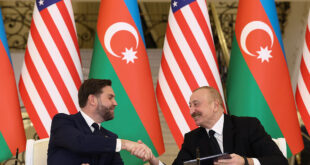RUSSIAN AUTHORITIES TALK ABOUT GLOBAL THREATS, BUT PREPARE FOR LOCAL WARÂ
On May 10 Russian President Vladimir Putin delivered an address to the Russian Federal Assembly. Focusing on issues such as reform of the armed forces and threats to national security, Putin declared that Russia now had to address many security issues and the army should be able to fight “local, regional, and global threats simultaneously.” Specifically, “We should be always ready to repel any potential external aggressor and attacks of international terrorism and should be able to respond to any attempt to exert foreign policy pressure on Russia†(RIA-Novosti, May 10). While he did not specify the threats, many Russian observers believe that Putin meant the United States, which he has referred to as a “comrade wolf who knows whom to eat†(NTV, May 10). Commenting on Putin’s speech, Mikhail Nenashev, chair of the All-Russian Movement for Support of the Navy, told Radio Russia, “Frankly speaking today, just like yesterday and for the last hundred years, the USA is still our main global partner and rival†(Radio Russia, May 16).Â
On May 24 Russian Defense Minister Sergei Ivanov presented a special report to the State Duma on current military threats to the country (gazeta.ru, May 24). The report, “Construction of the Russian Armed Forces in 2006-2011,†was delivered behind closed doors, but Ivanov later explained some of its points to the media. “There is a great potential for conflict in the vast territory of the countries adjacent to Russia, and this potential cannot but affect our security,†he told reporters. “There are global threats, and even though the threat of thermonuclear war, as they used to say in the old times, is minimal, it does not mean, however, that we should not develop and improve our strategic forces†(Interfax, May 14). As for other threats, the defense minister gave no details, only that they were regional, local, and from terrorism.Â
Ivanov evidently wanted the journalists to believe that his report was more oriented toward external rather than regional threats. Nevertheless, his public statements about global threats contradicted what had he said to the Duma deputies. Vladimir Vasiliyev, head of the Duma Security Committee, said that Ivanov had told the deputies that Russia needed a mobile army capable of handling several regional threats at the same time. The Russian army will be divided into territorial units to establish regional groups that include all branches of the armed forces would be established (gazeta.ru, May 24).Â
The Kremlin uses the term “global threats†as a euphemism for Moscow’s desire to compete with the United Sates on the global level. However, it is less clear what the authorities mean by “regional conflict†and why they are regarded as a challenge to national security. If they mean frozen secessionist conflicts in countries adjacent to Russia like Moldova, Georgia, or Azerbaijan, they are clearly a problem for political stability in the post-Soviet region, but these are places where Russian troops have or could have peacekeeping rather than military missions.Â
Thus there really is only one region where the Russian army is needed as a military force — the North Caucasus.Â
When asked by a Radio Russia correspondent what regions Putin had in mind when he mentioned local conflicts, All-Russian Movement for Support of the Navy chairman Nenashev answered, “The 10-year standoff in the Caucasus is an example of the local conflicts. The people in Russia more and more often wonder when we will catch all the bandits [which have] having dozens of thousands of troops in the North Caucasus†(Radio Russia, May 16).Â
The ongoing war in Chechnya and the rebel strategy to extend it to the entire North Caucasus is in fact the only real threat to Russia now. According to different estimates, for the last several years the Russian army group in the Caucasus has been expanded to 300,000 or even 500,000 troops (Nezavisimaya gazeta, July 13, 2005). Nevertheless, it is still not capable of suppressing the growing strength of the local insurgency. Moreover, the low combat capability of the Russian army, which Putin also mentioned in his address (see Chechnya Weekly, May 11), force the military command to establish a unified strategic reserve in the region. Now that a massive rebel attack is possible in any of the North Caucasian republics, it is very important to have capable units in each part of the region. That is why the regional groups mentioned in Ivanov’s report are needed. According to one rebel attack scenario, Russian forces would counter an insurgent attack using a regional group based in the territory where the attack takes place. These groups should be strong enough to defeat the rebels without assistance from additional units. This plan becomes especially crucial if there are several major attacks in several Caucasian regions at once. The Kremlin must believe such a scenario to be quite possible, since Putin specified that the army must be ready to fight “in several local conflicts†(RIA-Novosti, May 10).Â
For political reasons, the Kremlin is not interested in attracting public attention to military developments in the North Caucasus. Russian officials may feel more comfortable talking about global threats, but reality never lets them relax and forget about the Caucasus.
 Eurasia Press & News
Eurasia Press & News



